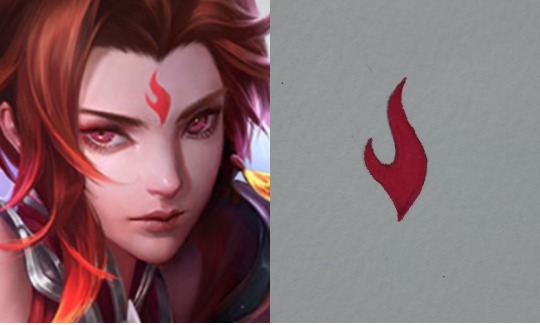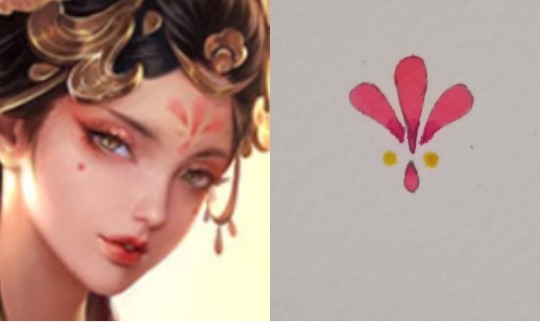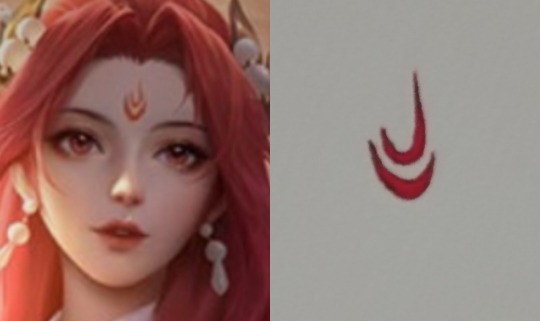#杨玉环霓裳曲
Explore tagged Tumblr posts
Text
"Kill them with kindness" Wrong. CURSE OF QIN SHI HUANG
的是不我一有大在人了中到资要可以这个你会好为上来就学交也用能如文时没说他看提那问生过下请天们所多麽小想得之还电出工对都机自後子而讯站去心只家知国台很信成章何同道地发法无然但吗当於本现年前真最和新因果定意情点题其事方清科样些吧叁此位理行作经者什谢名日正华话开实再城爱与二动比高面又车力或种像应女教分手打已次长太明己路起相主关凤间呢觉该十外凰友才民系进使她着各少全两回加将感第性球式把被老公龙程论及别给听水重体做校里常东风您湾啦见解等部原月美先管区错音否啊找网乐让通入期选较四场由书它快从欢数表怎至立内合目望认几社告更版度考喜头难光买今身许弟若算记代统处完号接言政玩师字并男计谁山张党每且结改非星连哈建放直转报活设变指气研陈试西五希取神化物王战近世受义反单死任跟便空林士台却北队功必声写平影业金档片讨色容央妳向市则员兴利强白价安呵特思叫总办保花议传元求份件持万未究决投哪喔笑猫组独级走支曾标流竹兄阿��卡马共需海口门般线语命观视朋联参格黄钱修��儿住八脑板吃另换即象料录拿专远速基帮形确候装孩备歌界除南器画诉差讲类英案带久乎掉迷量引整似耶奇制边型超识虽怪飞始品运赛费梦故班权破验眼满念造军精务留服六图收舍半读愿李底约雄课答令深票达演早卖棒够黑院假曲火准百谈胜碟术推存治离易往况晚示证段导伤调团七永刚哥甚德杀怕包列概照夜排客绝软商根九切条集千落竟越待忘尽据双供称座值消产红跑嘛园附硬云游展执闻唱育斯某技唉息苦质油救效须介首助职例热毕节害击乱态嗯宝倒注停古输规福亲查复步举鱼断终轻环练印随依趣限响省局续司角简极干篇罗佛克阳武疑送拉习源免志鸟烦足馆仍低广土呀楼坏兵显率圣码众争初误楚责境野预具智压系青贵顺负魔适哇测慢怀懂史配呜味亦医迎舞恋细灌甲帝句属灵评骑宜败左追狂敢春狗际遇族群痛右康佳杨木病戏项抓徵善官护博补石尔营历只按妹里编岁择温守血领寻田养谓居异雨止跳君烂优封拜恶啥浪核聊急状陆激模攻忙良剧牛垒增维静阵抱势严词亚夫签悲密幕毒厂爽缘店吴兰睡致江宿翻香蛮警控赵冷威微坐周宗普登母络午恐套巴杂创旧辑幸剑亮述堂酒丽牌仔脚突搞父俊暴防吉礼素招草周房餐虑充府背典仁漫景绍诸琴忆援尤缺扁骂纯惜授皮松委湖诚麻置靠继判益波姐既射欲刻堆释含承退莫刘昨旁纪赶制尚艺肉律铁奏树毛罪笔彩注归弹虎卫刀皆键售块险荣播施铭罗汉赏欣升叶萤载嘿弄钟付寄鬼哦灯呆洋嘻布磁荐检派构妈蓝贴猪策纸暗巧努雷架享宣逢均担启济罢呼划伟岛歉郭训穿详沙督梅顾敌协轮略慧幻脸短鹰冲朝忍游河批混窗乡蛋季散册弃熟奖唯藏婚镜紧猜喝尊���县伯偏偷秋层颗食淡申冠衣仅帐赞购犯敬勇洲束斗徒嘉柔绩笨拥漂狮诗围乖孤姓吸私避范抗盖祝序晓富译巨秀馀辉插察庆积愈端移宫挥爆港雪硕借帅丢括挂盘偶末厅朱凡惊货灭醒虚瑞拍遗忠志透烈银顶雅诺圆熊替休材挑侠鸡累互掌念米伴辅降豪篮洗健饭怜疯宏困址兮操临骗咧药绿尼蔡玉辛辈敏减彼街聚郎泡恨苏缩枢碰采默婆股童符抽获宇废赢肯砍钢欧届禁苍脱渐仙泪触途财箱厌籍冰涛订哭稳析杰坚桥懒贤丝露森危占茶惯尘布爸阶夏谊瓶哩惨械隐丰旅椰亡汽贝娘寒遭吹暑珍零刊邮村乃予赖摇纳烟伦尾狼浮骨杯隔洪织询振忽索惠峰席喵胡租款扰企刺芳鼠折频冒痴阴哲针伊寂嘴倚霸扬沉悔虫菜距复鼓摩郑庄副页烧弱暂剩豆探耐祖遍萧握愁龟哀发延库隆盟傻眉固秘卷搭昭宁托辩覆吵耳閒拨沈升胖丁妙残违稍媒忧销恩颜船奈映井拼屋乘京藉洞川宪拟寝塞倍户摆桌域劳赚皇逃鸿横牙拖齐农滚障搬奶乌了松戴谱酷棋吓摸额瓜役怨染迫醉锁震床闹佩牠徐尺干潮帽盛孙屁净凯撞迴损伙牵厉惑羊冬桃舰眠伍溪飘泰宋圈竞闪纵崇滑乙俗浅莲紫沟旋摄聪毁庭麦描妨勒仪陪榜板慕耀献审蟹巷谅姊逐踏岸葛卧洽寞邦藤拳阻蝎面殊凭拒池邪航驱裁翔填奥函镇丌宽颇枪遥穹啪阅锋砂恭塔贺魂睛逸旗萨丸厚斋芬革庸舒饮闭励顿仰阁孟昌访绪裕勿州阐抢扫糊宙尝菩赐赤喊盗擎劝奋慈尽污狐罚幽准兼尖彰灰番衡鲜扩毫夸炮拆监栏迟证倾郁汪纷托漏渡姑秒吾窝辆龄跌浩肥兽煞抹酸税陷谷冲杜胸甘胞诞岂辞墙凉碎晶邱逻脆喷玫娃培咱潜祥筑孔柏叭邀犹妻估荒袋径垃傲淑圾旦亿截币羽妇泥欺弦筹舍忌串伸喇耻繁廖逛劲臭鲁壮捕穷拔于丑莉糟炸坡蒙腿坦怒甜韩缓���扯割艾胎恒玲朵泉汤猛驾幼坪巫弯胆昏鞋怡吐唐悠盾跃侵丹鑑泽薪逝彦后召吕碧晨辨植痴瑰钓轩勤珠浓悟磨剪逼玄暖躲洛症挡敝碍亨逊蜜盼姆赋彬壁缴捷乏戒憾滴桑菲嫌愉爬恼删叹抵棚摘蒋箭夕翁牲迹勉莱洁贪恰曰侨沧咖唷扣采奔泳迹涯夺抄疗署誓盃骚翼屠咪雾涉锺踢谋牺焦涵础绕俱霹坜唬氏彻吝曼寿粉廉炎祸耗炮啡肚贡鼻挖貌捐融筋云稣捡饱铃雳鸣奉燃饰绘黎卷恢瞧茫幅迪柳瑜矛吊侯玛撑薄敦挤墨琪凌侧枫嗨梯梁廷儒咬岚览兔怖稿齿狱爷迈闷乔姿踪宾家弘韵岭咦裤壳孝仇誉妮惧促驶疼凶粗耍糕仲裂吟陀赌爵哉亏锅刷旭晴蝶阔洩顽牧契轰羞拾锦逆堕夹枝瓦舟悦惹疏锐翘哎综纲扇驻屏堪弥贯愚抬喂靖狠饼凝邻擦滋坤蛙灾莎毅卒汝征赠斗抛秦辱涂披允侦欲夥朗笛劫魅钦慰荷挺矣迅禅迁鹿秤彭肩赞丙鹅痕液涨巡烤贱丈趋沿滥措么扭捉碗炉脏叔秘腰漠翅余胶妥谣缸芒陵雯轨虾寸呦洒贞蜂钻厕鹤摔盒虫氛悄霖愧斜尸循俩堡旺恶叉燕津臣丧茂椅缠刑脉杉泊撒递疲杆趁欠盈晃蛇牡慎粒系倦溜遵腐疾鸭璃牢劣患祂呈浑剂妖玻塑飙伏弊扮侬渴歪苗汗陶栋琳蓉埋叡澎并泣腾柯催畅勾樱阮斥搜踩返坛垂唤储贩匆添坑柴邓糖昆暮柜娟腹煮泛稀兹抑携芭框彷罐虹拷萍臂袭叙吻仿贼羯浴体翠灿敲胁侣蚁秩佑谨寡岳赔掩匙曹纽签晋喻绵咏摊馨珊孕杰拘哟羡肤肝袍罩叛御谜嫁庙肠谎潘埔卜占拦煌俄札骤陌澄仓匪宵钮岗荡卸旨粽贸舌历叮咒钥苹祭屈陋雀睹媚娜诱衷菁殿撕蠢惟嚣踊跨膀筒纹乳仗轴撤潭佛桂愤捧袖埃壹赫谦汇魏粹傅寮猴衰辜恳桶吋衫瞬冻猎琼卿戚卓殖泼譬翰刮斌枉梁庞闽宅麟宰梭纠丛雕澳毙颖腔伫躺划寺炼胃昂勋骄卑蚂墓冥妄董淋卢偿姻砸践殷润铜盲扎驳湿凑炒尿穴蟑拓诡谬淫荡鼎斩尧伪饿驰蚊瘟肢挫槽扶兆僧昧螂匹芝奸聘眷熙猩癢帖贫贿扑笼丘颠讶玮尹詗柱袁漆毋辣棍矩佐澡渊痞矮戈勃吞肆抖咳亭淘穗黏冈歧屑拢潇谐遣诊祈霜熬饶闯婉致雁觅讽膜挣斤帆铺凄瑟艇壶苑悬詹诠滤掰稚辰募懿慨哼汁佬纤肃遨渔恕蝴垫昱竿缝蹈鞭仆豫岩辐歹甄斑淹崎骏薰婷宠棵弓犬涂刹郁坎煎螺遮枯台昔瘾蒂坠唔瞎筝唇表吁冤祷甩伞酱范焉娇驼沦碳沾抚溶叠几蜡涌氧弦娱皓奴颓嘎趟揭噹剥垦狭魁坊盐屎郝佩摧栗菊瘦钧匿砖嘘缚嘟盆债霞挽逍畔蕴颈获畏喂脾姬赴囊噪熄锡诀肇璋晕浊伐峡窃枕倘慌垮帕莹琦厢渺脏削锣虐豔薇霉衍腊喧娶遂睁裙韦矢伺钉婴蓄奸廿堵葬蓬鸦尝挨蕾璿挚券厨醇呻霍剃浆葡暨滨履捞咕耕棉烁尉艰妓棺鹏蒸癌纬菌撇惩绑甫崩魄拂汰氓歇萝呒萄蕃曝疋向胏烛腻襄妆髓朴薯颂薛滩橘贰嘲叹枚侮豹巢酬碑翩蚕辽矿屡谴卵撰攀肌冯宴盏阪浦迦颁炼尬胀辟艘株只湘饲爹梨喽侍疫雕黯并铝弗爪鄙钗栽狸谘柄悸喉擅劈秉芷裸锵贾逗寓咚璞烫铅啸炳屿竖惶仕挪栅迄顷窄鸥鲢郊倩兜茧磊抒夷绰溯拙僚芙杖溃凶鸽妒沌祺呐卦聆栖蝇佮唾汇楣匠蛛悼舜耿瞄芋瞒竭茵吼苛浸拯克豆沛掠廊凸搅俺酌倡朦蕉暱焕掏蝉焰狄绳惰芽裹宛御赎燥滔贬悍袂坟颉啤押尴颤钝腥缔粮哑槟簿斧肿纶僵齣辖蹲敷喘扎酿佑肖愈隧嗜檬迳碌襟凋圭寇污哨倪筠桦诈姜旬秃脂噢撼衅庚炫谭惭涩崔贷胡晒琉捏绮膝拭暗醋膨杠鑫瀑喃剖袜逾涅扳惘凳呃掘捍榔窍蜗旷梵暇稻柠抉辗蔚钩卜莺匡蜘祯哔窟亟谛溢黛晦伶逮傍葱刁堤恍匣谍禧轿耸瀚斐忿泓拐驴罕沫绽刃窈渝仄瑛葵噜绣奕窥浏隶蔽仟敛丞诘鳖疤��锥窕皱晰晖舅孰煽姚钞袱绊焚芦咸沮呕瞪淳丐茹盘菱篠涕衬蚀溉瑄翟怠钰躯肺掷丑奢荫靶纱芸佰峻阱哄肾庄囡阑戳腕菸凹蟾蒐呱巾雏螃盯馈垄毓犀逞姨穆樵阀弥跷搁隙疵憧忏琨阙萱怅辄搏榕饥捣渣眺虞俯绅谤珑咫俏淆蜀楠乞诅匀貂寰迋敞跪囚溺骆憬苇脊瑶疆乍杆眸窜孽卅夭簧徘馒趴鎚啼冗缉絮啄沸萃嘶鸳禽惫徨屐舆邂掀嫖苟檯矫铎棱哗徊拱蕙徬滞吠妞氾芹叩朽侪赦汐丰虔茅棠仑膳魉儡鸯懦渗邵筱畜崖瑕蕊揣擒挂屯莽矽侏弧澈饺奎裘塌饵偎泻蔓彗樽衔茍磋萎廓悯铸茎歼壤浇蚤恃瞻拚汀椒嚼粥磅佫勘脖吨澜锻笙厄嚷伽徽隅寥缤簾烘茜驯噎厦闰煤链锈诫颊俐曳蓓暧郤淌喀昆蔑峙躁菇逅雇殴泌酥缮莓辕骇巍糗扛杏茁琵礁秽岔僻焊嗡诵瞌捌遁赃涡琮卯锯扔苏邹莅隘蹋湛昼岫蛰桩藐汲禄皂濑绒耽粪粤卤曜懋咎痘聂垢瞳闵睿跤鉴躬斟淇莒毯幸骋岱庐殃橄恤叽鳞蒙芥榄楷硫苔麒椎禹喙厘袅亥倌吭诃裔梓蓦岩帜瓣狡惕蒙怯嫩龚嚎豚埠暸唆妃瓢蹄厮讥啃琶愿噱狷搪氢橙咆靡砌筷兑溼呸镀踹冢祟懈术搓攸橡膛俞祉冀炊瓷遐揽鹭茄蜢塘郡韬挟牟糙阎旻赘霆呎炭霄媳瘤猿颺煚铠蝠钜苓傀烬墅璇困愣恬嫉琐嫂淼梳憎搂藻酵屉陡摺箫飨桐蚱曦璧偈蹦昶咙铮嗤戌屌耘裳啾嵘胺笃烹巩厝疚鸶汹蔷沐咽烙畸讳揍曙铐朔涓睬矶岐凄鲫楞鲤荆偕徜饥肮蔼辙恁霈诛鞠茉煜傭嗓酹昙铨艳绷峨揉珈鹃诲臆焰隽熔堇韧扒憨舵肛戊坝抠骷碘鞍冕榨肘羔哺霓巳铲蚵惆驹撷稽羹纺蜕趾吊豁褪癸眨臻慷蝙胧沼舱柚抨葭枷靥硝绚绞缆讪褚砗嫣蒲丫鹦蒹憩懊聋盎婊盔峦矜凛铺鹉蜴惚���羁媛堑泛疮韶憋祁诟搔蜥袒奄忱玖拌悴祠扼髅筑蛤茱骐捶须亢葔艸筛岳岳慵戮跎砰仑炜篱笈瘫吏痊庶厥棘娑沁窘鲸缕硷俨栈蔬鸠闲迢恣昀泠涟眩噫娥荼鳄镖侃虏俾樟榴咛炬窦笠翱莘躇翡姜枭匕藩徉觞拣吱皈墉傌梢巅踌萌幌杭侥栾奠痲夸瘖芯蟀驿耨禾瑾
“kill them with kindness” Wrong. CURSE OF RA 𓀀 𓀁 𓀂 𓀃 𓀄 𓀅 𓀆 𓀇 𓀈 𓀉 𓀊 𓀋 𓀌 𓀍 𓀎 𓀏 𓀐 𓀑 𓀒 𓀓 𓀔 𓀕 𓀖 𓀗 𓀘 𓀙 𓀚 𓀛 𓀜 𓀝 𓀞 𓀟 𓀠 𓀡 𓀢 𓀣 𓀤 𓀥 𓀦 𓀧 𓀨 𓀩 𓀪 𓀫 𓀬 𓀭 𓀮 𓀯 𓀰 𓀱 𓀲 𓀳 𓀴 𓀵 𓀶 𓀷 𓀸 𓀹 𓀺 𓀻 𓀼 𓀽 𓀾 𓀿 𓁀 𓁁 𓁂 𓁃 𓁄 𓁅 𓁆 𓁇 𓁈 𓁉 𓁊 𓁋 𓁌 𓁍 𓁎 𓁏 𓁐 𓁑 𓀄 𓀅 𓀆
197K notes
·
View notes
Text
I did my best.😅






#王者荣耀#honor of kings#花钿#huadian#露娜#露娜绯红之刃#luna#王昭君#王昭君精灵公主#wang zhaojun#杨玉环#杨玉环霓裳曲#yang yuhuan#貂蝉#貂蝉唤灵魅影#diaochan#不知火舞#shiranui mai#mai shiranui#不知火舞魅语
34 notes
·
View notes
Text
新贵妃醉酒 - Translation Notes
For my translation of this song, see this post. Listen to the original version of the song here. Below are some extensive translation notes for this song- be aware that there is a lot of cultural context for this one.
So I decided to take a hand at translating this one after I realized it was one of the few songs by Li Yugang that has garnered significant western attention due to the mash-up performance with Dimash. That performance was definitely something to behold, so I highly recommend it! Also recommend this version where a few lucky (and extremely talented) fans get to sing with him.
This song is emblematic of why translating Li Yugang songs is so difficult- most of his songs are based on pre-existing Beijing operas, famous Chinese historical events, paintings with cultural significance, etc, and the lyrics border on nonsensical without the proper context. So without further ado...
---
The Context
This song is based explicitly on the Beijing opera piece, <贵妃醉酒> by 杨玉环 (Mei Lan-Fang), usually translated as “The Drunken Concubine” but more accurately probably means something like “The Intoxication of the Imperial Consort.” The song is named after the opera- the name simply adds the character “新” (for “new”) in front of the opera name, indicating that this is a new way (in pop song format) of telling the tale of The Drunken Concubine.
You can read some more about the general plot of the opera here, but the gist is that the imperial consort has prepared a banquet for her lord emperor, but he has reneged on his promise and is instead spending the night with other concubines. Filled with bitterness and jealousy, she drinks herself into a deep state of intoxication.
This opera is actually one of many based on the actual historical figure of Yang Yuhuan, or “Yang Guifei”, where the Guifei “贵妃” refers to her status as one of the highest imperial consorts to the Tang dynasty Emperor Xuanzong. You can read more about her life here. The political strife happening during her husband’s reign and her own tragic end have led many future generations to mythologize her life.
While this song by Li Yugang is rooted in imagery based on The Drunken Concubine, most of the actual lyrics are based on the Tang era poem <长恨歌> (Song of Everlasting Regret) by poet 白居易 (Bai Juyi). You can read the text here. This poem is our primary source for a lot of Yang Guifei’s life and affair with the Emperor.
---
Line by Line Translation Notes
As usual, I’ve done a more literal pass over the hanzi here to clarify some of the choices I made in my translation.
那一年的雪花飘落梅花开枝头 // That year’s snowflakes fell, the plum blossoms bloomed at the tips of the branches 那一年的华清池旁留下太多愁 // That year, the banks of Huaqing Pool were left with too much sorrow
The first line paints a picture that is quite common in classical Chinese art. Plum blossoms often bloom late in the winter when snow still covers the trees, and thus are seen as harbingers of spring. Despite the presence of the snow in this line though, I think it’s likely referring to a scene in the early spring rather than the winter due to the context of the next line-
In the second line, Huaqing Pool refers to hot springs in modern Shaan’xi, China. It’s famous for being the supposed site of the Emperor Xuanzong’s romance with Yang Guifei, as recorded by Bai Juyi in the Song of Everlasting Regret (mentioned above). In the song, their romance begins on a cold day in the early spring, when she was bathing in the pool, hence that first line.
( As an aside, we don’t know if this has any actual historical basis, but if true, it would be quite poetic as the site was destroyed in the events of the An Lushan Rebellion, which ultimately led to Yang Guifei’s death and Xuanzong’s abdication. )
不要说谁是谁非感情错与对 // Don’t talk about who was right or who was wrong, feelings that are wrong and right 只想梦里与你一起再醉一回 // [I] just want to be drunk with you one more time in a dream
The first line is quite repetitive since it makes two explicit references to “right or wrong”, once in regards to people (”who”) and once in regards to emotions/feelings. But there’s some nuance to the wording here. When we talk about “是非”, there’s an implication of “true/false”, or a sense of “being true” (是) vs “being at fault/to be blamed” (非). The “对错” dichotomy used to describe their feelings in the second half of the line is a much more direct “right/wrong”. I tried to capture that as much as possible in my translation of this line.
The second line translates pretty clearly- it’s just much less poetic, so I wanted to try and get some of the tone across in my translation rather than the literal version of the line. In particular, the word “醉” for drunk/intoxicated in Chinese can be used as both an adjective and a verb directly. In English, we can only really say “to get drunk” which sounds a bit crass.
These two lines together reference back to “The Drunken Concubine” version of Yang Guifei’s character, including the idea of her feeling left behind by her Emperor.
金雀钗玉搔头是你给我的礼物 // Goldfinch hairpins and jade hair ornaments are gifts you gave to me 霓裳羽衣曲几番轮回为你歌舞 // The Raiment of Rainbows and Feathers, [I] danced and sung for you many times over
In the first line, “金雀钗玉搔头” doesn’t translate very gracefully because the type of hair ornament doesn’t have an English equivalent. A lot of hair ornamentation and jewelry was fashioned with imagery of birds (goldfinches, swallows, etc) and often made of jade. Here’s a post compiling what these ornaments might have looked like.
In the second line, “霓裳羽衣曲” actually refers to a specific Tang dynasty song that’s usually translated as “Raiment of Rainbows and Feathers.” The song describes a myth of Emperor Xuanzong- in his desire to meet “神仙” (celestial/immortal beings), he travels to the Moon Palace (月宫) where he meets many “仙女” (celestial maidens). There are conflicting records regarding the origins of the piece. One text saying that the Emperor travelled to the mountains and was inspired by a dream in which he travelled to the Moon Palace. Another record reveals that it’s likely the tune was adapted from a “western” (aka Indian) piece known as the “Brahman Tune.” Historians generally believe the truth is somewhere in the middle.
Regardless, the performance of this piece includes extensive singing, dancing, and instrumentation, and it is considered one of the greatest pieces of Tang dynasty art recorded. You can watch a modern rendition of this performed by Li Yugang himself here.
Both these lines have specific references to lines from the Bai Juyi’s poem. The goldfinch jewelry is referenced in Line 40 as part of what she wore when she was sentenced to death, and Line 98 references the Emperor’s memories of her beauty when she danced the Raiment of Rainbows and Feathers.
剑门关是你对我深深的思念 // The Jianmen Pass is your deep remembrance for me 马嵬坡下愿为真爱魂断红颜 // Below the Mawei slopes, a beautiful young woman is willing to break her soul for true love
The Jianmen Pass is a mountain pass in the Sichuan province of China. It’s famous for being incredibly narrow and hard to travel through, but also one of the key positions for armies to gain control of the Sichuan region due to its strategic location. In the context of this song, it refers to Emperor Xuanzong’s retreat to Sichuan during the An Lushan Rebellion, after which he abdicated the throne. Yang Guifei dies at Mawei before they actually manage to cross the mountain pass.
Jianmen is referenced in Line 44 of Bai Juyi’s poem, as part of the Emperor’s mourning after Yang Guifei’s death. I’ve interpreted this line to mean that the harsh trip through the mountain pass became part of the Emperor’s profound sense of “思念”, a longing remembrance for something that is now gone.
The second line goes into more detail on the end of Yang Guifei’s life, making explicit reference to “马嵬坡” (Mawei slopes), the name of the place she died, and where she was buried.. Here, her willingness to sacrifice herself for her love is described with “魂断红颜.” The words “魂断” literally translates to “to break/cut short [one’s] soul/spirit”, and in context, can refer to both a physical and spiritual death. The characters in “红颜” literally translates to “red/rosy cheeks” and used together refers to a young and beautiful woman.
In this case, “a young woman dies at the bottom of the Mawei slopes for [the sake of] true love.”
爱恨就在一瞬间 // In a single moment, love and hate 举杯对月情似天 // Raised their glasses in a toast towards the moon, feelings like the sky/heavens 爱恨两茫茫 // Love and hate, the two are boundless 问君何时恋 // Ask [my] lord when you will love
The first line and the first half of the second line part of one sentence, while the second half “情似天” (feelings like the sky/heavens) kind of breaks off into its own thought, but the general imagery for all of the first 3 lines is the joining of both love and hate as emotions that are boundless and, in the singer, the two have joined together in her thoughts towards her lord.
The last line here is a little more difficult to translate because the singer is asking “君” (a pronoun sometimes translated to lord or gentleman, but generally describes a man of high moral standing in particular) when he will “恋” (love). In Chinese, there is a distinction between “爱” and “恋” when referring to love. The first generally encompasses the concept of love (familial, platonic, romantic) in general- it is the direct opposite of the word “恨” for hate. “恋” on the other hand refers specifically to romantic (and sexual) love. It’s sometimes translated as “passion”, but it doesn’t necessarily need to be what we think of as passionate.
This whole section is a reference back to the plot of the original opera <贵妃醉酒>, where Yang Guifei is drinking alone in the night, full of jealousy and bitterness towards a lord that has chosen the company of others.
菊花台倒影明月 // The chrysanthemum terrace reflects the light of a bright moon 谁知吾爱心中寒 // Who could know that my love could [turn] my heart so cold 醉在君王怀 // Drunk in the embrace of my lord 梦回大唐爱 // Dreams take me back to the love of the Great Tang [dynasty]
For the first line, the significant part is the reference to the chrysanthemum flower. It’s often seen as a flower of nobility, and is considered one of the “四君子” (Four Lords/Gentlemen) of Chinese flowers. In this song, the chrysanthemum terrace is likely meant to evoke the nobility/royalty of the lord the singer is waiting for- the fact that he is not there and only the moonlight remains reflecting off the surface is a poignant image.
Interestingly enough, if we want to take the interpretation further, there’s some other room for analysis. The chrysanthemum is a contrast to the plum blossoms mentioned at the beginning of this song as heralds beginning of autumn. They can be made into chrysanthemum wine, which is often drunk for longevity and good health- this links back to the liquor imagery in the rest of the song. Because of their associations with longevity in general, they’re also common funeral flowers, and as we know from the earlier, this song is written from the point of view of a singer who is already dead.
The second line is a bit ambiguous- the phrasing of the original Chinese line could mean “who could know” (as in, how could anyone else see/understand) or it could be “who would have known” (as in, who could have predicted such an unexpected outcome). The English phrase “who knew” leans towards the second, but I went with it because it sounds a little more natural.
In the third line, I translated “君王” as “my lord” just like I did with the “君” alone earlier, but it’s worth noting that the extra “王” in this word means “king” so it is probably more along the lines of “majesty” than just “lord.”
The final line of the song refers to the singer dreaming again of “大唐爱” (literally love of the Great Tang). “大唐” is usually how we refer to the Tang dynasty in general.
I’ve chosen to interpret this line to mean that the singer is remembering her time in the great Tang palaces as part of the dynasty before everything fell apart and the Emperor was forced to flee. As a result, I’ve appended “palace” to this line in my translation since just making a reference to “Tang” sounds awkward and doesn’t mean anything to an English speaking audience.
---
And that is all for my notes on this song! This ended up being much longer than I originally anticipated, but there was just so much literary and historical context behind this one. I ended up learning a bunch of things while researching this, and I hope someone else finds this as fascinating as I do!
Li Yugang has a lot of love for classical Chinese culture, and even more than that, he wants to bring it to a larger audience through his own blend of pop music and traditional Chinese operatic poetry. I really enjoyed working on this, and will try to do a few more of his songs in the future!
#新贵妃醉酒#李玉刚#w: cultural context#notes#historical background#chinese history#chinese literature#chinese opera#li yugang
5 notes
·
View notes
Text
《王者荣耀》新英雄杨玉环来了:令人却步的绝代美人
一个月前,《王者荣耀》官方微博发文表示,一位辅助新英雄即将上架,她便是众所期待的古代四大美女之一—杨玉环。
昨晚,官方宣布杨玉环即将登场,她擅长用琴音统治战场,除了设定是个妩媚而优雅的绝代美人外,小姐姐还有着令人望而却步的距离感……
据悉,杨玉环使用武器为琵琶,并且琵琶的形态将会根据技能释放而改变,有着青色的光芒缠上,与辅助定位的杨玉环非常应景。
技能介绍:
↑↑↑被动技能:惊鸿调(GIF动图)
杨玉环切换曲调,在释放技能时产生不同的效果:破阵:释放技能对范围内敌人造成当前生命值百分比的法术伤害;清平:释放技能对范围内友军造成已损生命值百分比的生命回复。
↑↑↑一技能:霓裳曲(GIF动图)
杨玉环拨动琴弦,产生3道音波,音波在向外飞出后会缓慢追击敌方单位(英雄优先)造成法术伤害与减速,持续一段时间;释放技能后,杨玉环的下一次普通攻击将会造成额外法术伤害,并减少所有技能的部分冷…
View On WordPress
0 notes
Text
《王者荣耀》新英雄曝光:超强奶妈杨玉环 定位辅助
1月10日晚上,王者荣耀官方微博发文,一位辅助新英雄即将上架,她便是许多玩家一直期待的古代四大美女之一—杨玉环。
从图中可以看出,杨玉环身着长裙,周围裙带,看起来仙气十足,又是一位大长腿的小姐姐。
据官方消息,杨玉环使用武器为琵琶,并且琵琶的形态将会根据技能释放而改变,有着青色的光芒缠上,与辅助定位的杨玉环非常应景。
技能介绍:
↑↑↑被动技能:惊鸿调(GIF动图)
杨玉环切换曲调,在释放技能时产生不同的效果:破阵:释放技能对范围内敌人造成当前生命值百分比的法术伤害;清平:释放技能对范围内友军造成已损生命值百分比的生命回复。
↑↑↑一技能:霓裳曲(GIF动图)
杨玉环拨动琴弦,产生3道音波,音波在向外飞出后会缓慢追击敌方单位(英雄优先)造成法术伤害与减速,持续一段时间;释放技能后,杨玉环的下一次普通攻击将会造成额外法术伤害,并减少所有技能的部分冷却时间。
↑↑↑二技能:胡旋乐(G…
View On WordPress
0 notes